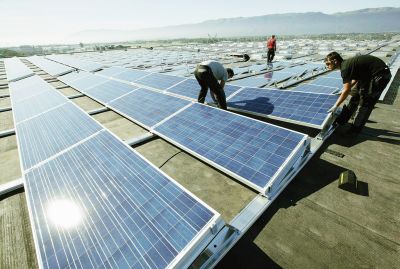Malaysia is among the “most attractive” renewables markets in Southeast Asia, says BMI Research. The London-based firm says economic and political stability, as well as strong regulatory support for renewables, is attracting investment. It ranks the country’s attractiveness roughly close to that of Thailand and China, and just slightly behind lower-risk investment destinations such as Singapore and Australia.
“While the scale of Malaysia's renewables sector remains limited compared to regional counterparts; chiefly Indonesia and Thailand, the continuation of auctions in the country and the successful commissioning of the projects contracted presents a sizeable upside risk to our forecasts,” it says.
The Malaysian Energy Commission (EC) is now assessing prospective developers according to the guidelines for the request for proposal (RfP) for large-scale PV projects that it issued in February. The EC has reported prices between about MYR 0.34 ($0.08)/kWh and MYR 0.53 ($0.12)/kWh for installations up to 30 MW in Peninsular Malaysia, in the state of Sabah on Borneo and the eastern Malaysian federal territory of Labuan. The authorities have allocated 360 MW of the capacity in the second-round auction to Peninsular Malaysia.
Popular content
The auctioned projects will likely be connected to the grid in 2019-20, with all electricity to be sold under PPAs to utilities Tenaga Nasional Bhd. and Sabah Electricity Sdn. Bhd.
Earlier this month, Chinese inverter supplier Huawei started installing its SUN2000-42KTL string inverters at a 50 MW solar array that is being built in Sabah. Upon completion, it will be the among biggest PV projects in Malaysia.
This content is protected by copyright and may not be reused. If you want to cooperate with us and would like to reuse some of our content, please contact: editors@pv-magazine.com.


1 comment
By submitting this form you agree to pv magazine using your data for the purposes of publishing your comment.
Your personal data will only be disclosed or otherwise transmitted to third parties for the purposes of spam filtering or if this is necessary for technical maintenance of the website. Any other transfer to third parties will not take place unless this is justified on the basis of applicable data protection regulations or if pv magazine is legally obliged to do so.
You may revoke this consent at any time with effect for the future, in which case your personal data will be deleted immediately. Otherwise, your data will be deleted if pv magazine has processed your request or the purpose of data storage is fulfilled.
Further information on data privacy can be found in our Data Protection Policy.